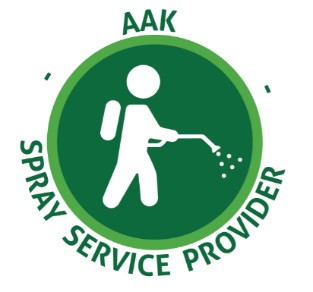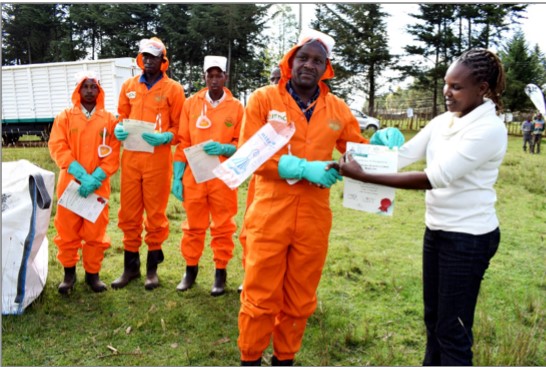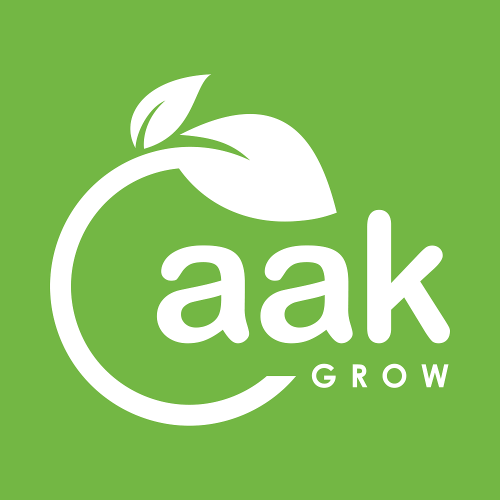
Spray Service Providers (SSPs) deliver accurate, affordable pest control
AAK and other donors have trained 1,460 Kenyan agripreneurs as professional pest control service providers. They provide pesticide advice, spraying and application services to farmers for a small fee – no more than a few hundred shillings.
The goals of this service are to increase agricultural production and ensure food safety in Kenya, both for local and international markets, by delivering the professional application of safe crop protection products driven by environmentally-sensitive integrated pest management (IPM).
The SSP service runs in Taita Taveta, Kajiado, Makueni, Machakos, Kitui, Nyeri, Embu, Kirinyaga, Nyandarua, Isiolo, Muranga, Nakuru, Uasin Gishu, Trans Nzoia, Kericho, Kisii, Migori, Homabay, Kisumu, Siaya, Busia, Kakamega, Vihiga and Bungoma. For the contacts for an SSP near you, see our register https://aakgrow.com/category/library/accredited-ssps/
SSPs use have direct supplier partnerships to access quality pet control products, meaning your farm never suffers losses caused by counterfeit products that don’t stop pests and diseases. The service providers only apply the correct pesticides, at the correct time and recommended rate, thus ensuring efficient and effective control for the minimum spend.
They also ensure you know when to harvest so that your crops have no damaging residues, and they handle all pesticide waste in line with legal requirements to guarantee no environmental damage.
Farmers who use SSPs get easier access to certification for export, better pest control, better yields, and produce safe and healthy foods in an undamaged environment – all for a moderate fee covered many times over by the results in better farming, better food and better health.

The SSP service:
- Boosts food security by increasing agricultural output
- Creates jobs for youth and women as Sprayers, Brand Agents, and Trainers
- Ensures access to quality and genuine pesticides, strengthening the supply chain.
- Reduces pesticide resistance by using the correct pesticides in the right quantities for the target pests.
- Minimises unsafe handling of pesticides by farmers.
Join the SSPs
We provide regular training for new SSPs. Contact us (hyperlink to URL) if you are interested in being considered as an SSP.
- You need to be:
- A farmer, aged 25-45 years, with a high level of maturity and grounded in the community
- Able to read and write in English and Swahili, with education to Form 4 (Advanced Level SSP) and Class 8 (Basic Level SSP)
- Physically fit, self-drive, motivated and energetic
- Knowledgeable in agronomics, crop production and farming practices in your sub-county
- A member or leader of a farmers’ group
- Available and willing to sell your services to farmers and, ideally, already offering agricultural services in your community, such as grafting, soil testing, vaccinations, seedlings
- Able to access to quality application equipment,or be willing to get a spraying kit
- Faithful and trusted by the community as a leader and community member
- Training:
The SSP training will enhance your competency in:
- Integrated soil fertility management
- Integrated pest management principles
- Classification of pesticides
- Responsible use of pesticide
- Pesticide application skills
- First Aid for pesticide poisoning
- Basic record keeping
- Training and facilitation skills
- Financial management
- Business plan development
The training is very practical and takes between 4 to 5 days for SSPs, and for SSP Trainers.
- Certification and equipping
The SSPs take a written and practical with the pass mark set at 60%. Successful candidates are issued with a certificate and an identification card, which is valid for 2 years. Renewal is subject to attendance on a refresher course. In order to perform their role safely and effectively, the SSP is equipped with Personal Protective Equipment
- Support on the job
On deployment, the SSPs are linked to stakeholders such as AAK member companies, the Ministry of Agriculture, agrodealers, NGOs and farmer groups for continuous monitoring, mentoring, and learning. This ensures they access quality inputs as well as technological information on pest management.
- Promotion of SSPs.
There are a series of community activities to create awareness on the importance of using SSPs. These include graduation ceremonies for new SSP’s, farmer field days, demonstration sites, road shows/caravans, leaflets, social media, short txt messages and radio adverts.
For more information about our SSP activities, see:

